Microvascular complications
Diabetes can affect the small blood vessels in your body over time, this is referred to as microvascular complications. They typically include retinopathy (eye damage), nephropathy (kidney damage), neuropathy (nerve damage), autonomic neuropathy (autonomic nerve damage), macrovascular complications (large blood vessel damage), mental health complications, and other complications .
Retinopathy
This is divided into various stages, ranging from having no retinopathy to non-proliferative retinopathy through to proliferative retinopathy.
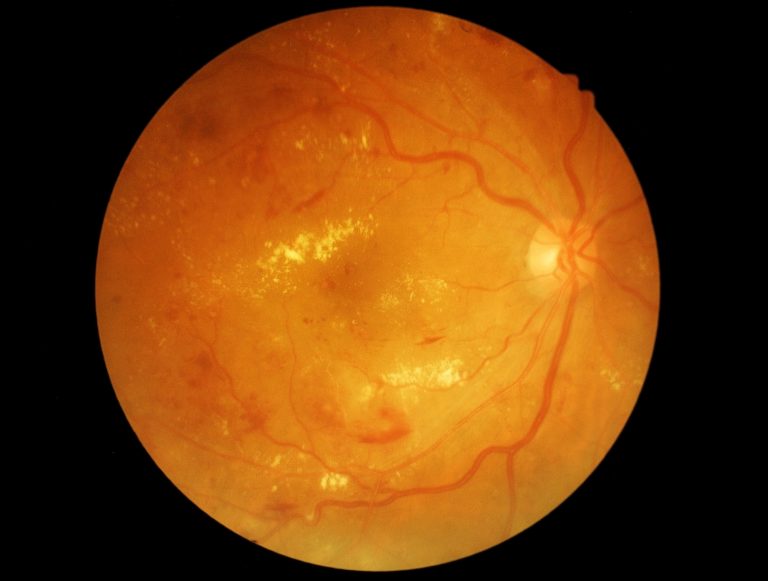
The retina is the lining of the inside of the eye ball, sometimes also referred to as “the back of the eye”. On this image there are some microaneurysms, these are small dilatations (expanded or widened parts) in the retinal blood vessels that can leak fluid and cause haemorrhages There are also various areas with white spots, these are called exsudates. Together the microaneurysms and exsudates indicate the presence of retinopathy.
Other eye conditions, such as cataracts and glaucoma are also more common in people with diabetes.
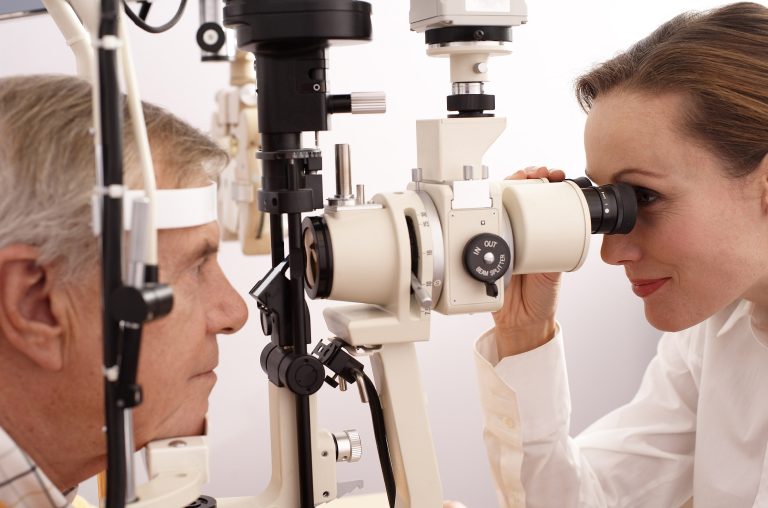
You can have significant damage to your eyes without it affecting your vision, but early detection and early treatment provide the best results, so it is important to get your eyes checked at least every second year. This can be done by an ophthalmologist, or eye specialist doctor, but you can also get checks by your optometrist (who can refer you on to an ophthalmologist if needed).
You can read more about looking after your eyes here.
Nephropathy
High blood glucose levels and high blood pressure can damage the small blood vessels in the kidneys, causing them to leak. This is called nephropathy or diabetic kidney disease.
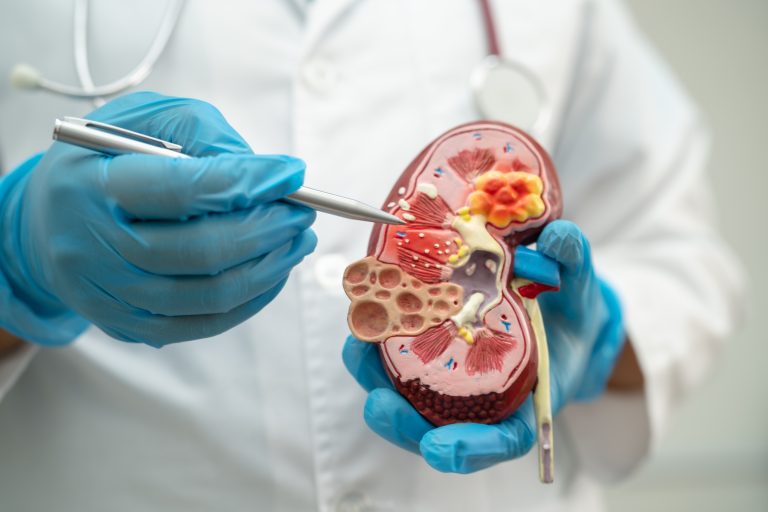
Your kidneys filter your blood to get rid of waste and toxins from your body. They also regulate your blood pressure, so damaged kidneys can affect your blood pressure. Having healthy kidneys helps keep your body in good condition and improves your general wellbeing.
If you develop nephropathy, you would usually have no symptoms. So it is important to get your kidneys (both blood and urine tests), glucose levels and blood pressure checked regularly. Your GP can do these checks for you, and they can refer you to a nephrologist, a kidney specialist doctor, if needed.
Neuropathy
Damage to the nerves is called neuropathy.
You could develop peripheral neuropathy, which means the nerves in your legs and/or arms are affected. This can cause symptoms such as tingling, numbness, cramps and pain. Peripheral neuropathy usually starts in the toes, then can work its way up the legs to the knees, before affecting your hands. If you have peripheral neuropathy, generally both the left and right side are affected similarly.
Autonomic Neuropathy

You could also develop autonomic neuropathy, which affects the autonomic nervous system, the part of the nervous system that controls all the automatic processes in your body, such as digestion, bladder, and bowel control. Common symptoms include vomiting, diarrhoea, and incontinence. Autonomic neuropathy can also cause erectile dysfunction (for example impotency) in men and sexual dysfunction (for example vaginal dryness) in women.
Macrovascular complications

When the large blood vessels (the coronary and peripheral arteries) are affected by diabetes it is referred to as macrovascular complications. Damage can be caused by the build-up of a plaque, made up of cholesterol and other blood fats and substances. The plaque can affect the blood flow due to a narrowing of the blood vessels. If the plaque breaks it can form clots that can block the blood vessel completely. Macrovascular complications include heart attack, stroke, and problems with the circulation in your lower limbs.

The risk of developing macrovascular compications is higher if your blood glucose levels are frequently (and for prolonged periods) above your target range. Other risk factors include having high blood pressure, high cholesterol, carrying extra weight around your waist, smoking and having a family history of vascular problems.
Mental health complications
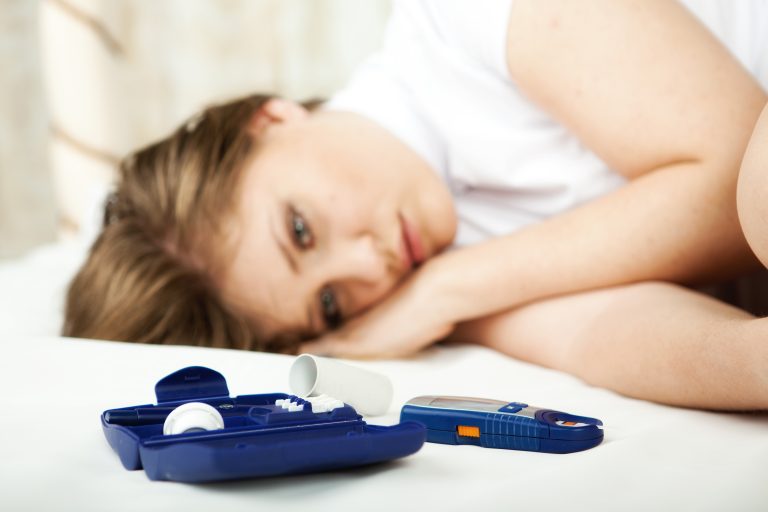
There is also a complex bi-directional relationship between diabetes and some mental health conditions. This means that diabetes can increase the risk of developing mental health conditions, such as anxiety, depression, burn-out and diabetes distress. And having certain mental health conditions, such as depression, bipolar disorder, or schizophrenia, can also increase your risk of developing diabetes.
You may like to take a look at this article on ‘7 practical tips to look after your mental health when living with diabetes’.
Other Complications

Diabetes can also affect other parts of your body. For example, diabetes can also affect your digestive tract (your ‘gut’) and your skin. People with diabetes are more likely to develop dental problems.
Signs of dental problems can include a dry mouth, sore and swollen or bleeding gums, tooth decay, and infected gums (gingivitis).
Reducing the risk of diabetes complications
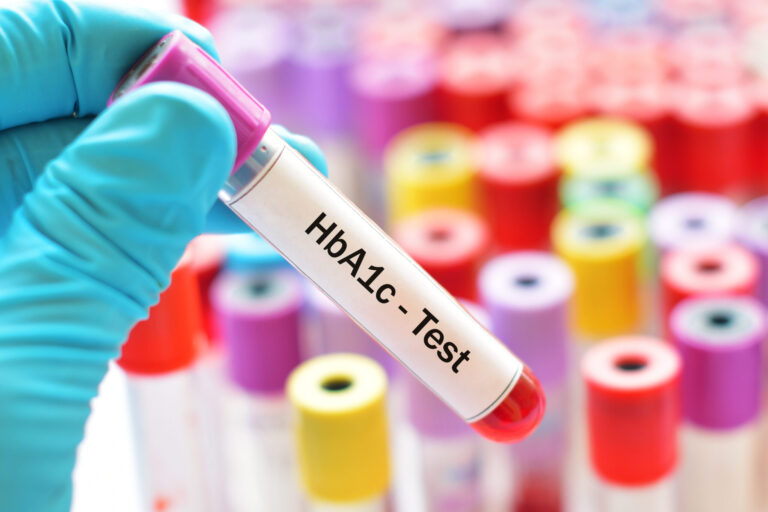
Did you know that 85% of diabetes-related foot ulcers and amputations can be prevented with proper care?!

Nobody wants to develop diabetes related complications, so it is good to know that you can reduce the risk by managing your diabetes well and by taking care of your general health.
If you need help managing your diabetes and taking care of your health, Carolien can help you with all of that. So contact us so see how she can help.
